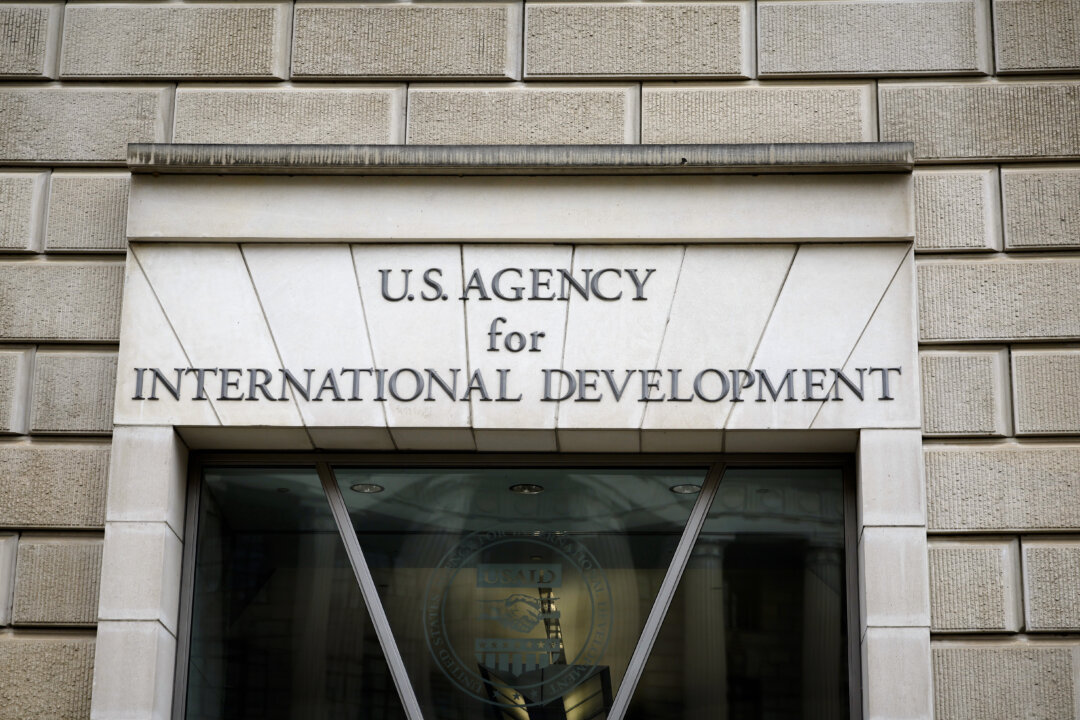The judge said administration officials must lift a temporary 90-day freeze on foreign aid, in line with a February court order.
A federal judge ordered federal government officials on Feb. 20 to comply with his earlier order to lift a freeze on nearly all foreign aid, though he stopped short of holding them in contempt of court.
U.S. District Judge Amir Ali said administration officials—including those from the State Department, the U.S. Agency for International Development (USAID), the Office of Management and Budget, and their agents—had instead “come up with a new, post-hoc rationalization for the en masse suspension” of funding.
“[T]he Court’s TRO does not permit Defendants to simply continue their blanket suspension of congressionally appropriated foreign aid pending a review of the agreements for whether they should be continued or terminated,” Ali wrote in his order.
“That is the very action that the Court temporarily enjoined because Plaintiffs had shown that blanket suspension pending review would cause irreparable harm and was likely arbitrary and capricious under the APA [Administrative Procedure Act] for failing to consider the massive reliance interests.”
In February, Ali ordered the administration to temporarily restore funding for nonprofit organizations that rely on federal grants to provide foreign aid assistance after President Donald Trump announced a 90-day pause.
In the Feb. 13 order, Ali said the administration had failed to justify why a blanket suspension of all congressionally appropriated foreign aid was “a rational precursor to reviewing programs.”
Administration officials said in court filings earlier this week that it was complying with the order, but was reviewing its contracts and grants and had so far determined that all of them allowed it to cancel or suspend them.
The administration pointed to a line in the judge’s order that states, “Nothing in this order shall prohibit the Restrained Defendants from enforcing the terms of contracts and grants.”
Officials said that while they had “worked diligently” to comply with the judge’s order, they had not yet identified a “termination, suspension, or stopwork order issued on a USAID contract, grant, or cooperative agreement that was not allowed” under the judge’s order.
Two non-profit groups, among plaintiffs suing over the aid freeze, urged Ali to find administration officials in contempt of court.
“This Court should act as expeditiously as possible to compel compliance,” the AIDS Vaccine Advocacy Coalition and Journalism Development Network wrote in a Feb. 19 filing with the court. “This Court should not brook such brazen defiance of the express terms of its order.”
In Thursday’s seven-page order, Ali declined that request, determining instead that finding the government in contempt of court was “not warranted on the current record and given Defendants’ explicit recognition that ‘prompt compliance with the order’ is required.”
Ali said the court was prepared to hold a preliminary injunction hearing by March 4 and issue an opinion on the foreign aid freeze as it pertains to the contractors and nonprofits.
The Epoch Times reached out to the White House, State Department, and Office of Management and Budget for comment but did not receive a response by publication time.
In signing the Jan. 20 executive order issuing the foreign aid freeze, Trump said the U.S. government’s foreign policy is “not aligned with American interests and in many cases antithetical to American values.”
“They serve to destabilize world peace by promoting ideas in foreign countries that are directly inverse to harmonious and stable relations internal to and among countries,” Trump wrote.
He added that his administration would conduct a review to ensure such programs aligned with U.S. interests.
The announcement prompted a wave of lawsuits alleging violations of the Administrative Procedure Act, among other claims.
Reuters contributed to this report.

